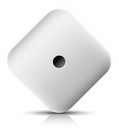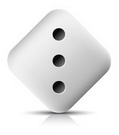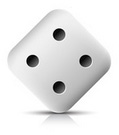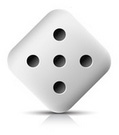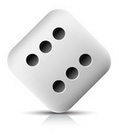Roll 10 D22 dice
10D22 Dice Roller
- 10D22 Dice Roller
- Rolls 10 D22 dice
- Lets you roll multiple dice like 2 D22s, or 3 D22s. Add, remove or set numbers of dice to roll
- Combine with other types of dice (like D20 and D24) to throw and make a custom dice roll
Statistics of this Dice Roller
- Roll10D22
- Total Kinds of Dice1
- Total Dice10
- Minimum Sum10
- Maximum Sum220
- Lowest Dice Face1
- Highest Dice Face22
- Highest Dice Face of the Smallest Die22
-
10D22
Total Possible Combinations 44,352,165
Number of combinations are calculated using the formula [ (22+10-1) choose (10) ]
You can try generating all the combinations using the following combination generator
All possible combinations of 10D22 -
10D22
Total Possible Permutations 26,559,922,791,424
Number of permutations are calculated using the formula [ 22^10 ]
You can try generating all the permutations using the following permutations generator
All possible permutations of 10D22
Probabilities of this Dice Roller
10D22
Probability of getting a 1
In technical terms this is equivalent of getting atleast one 1. This is close to 0.37, about 37.2% percent.This is calculated by multiplying all the probabilities of not getting a 1 for each dice and then subtracting the answer from 1.
1 - (21/22 x 21/22 x 21/22 x 21/22 x 21/22 x 21/22 x 21/22 x 21/22 x 21/22 x 21/22)
Probability of not getting a 1
Probability of not getting any 1 is close to 0.63, about 62.8% percent.This is calculated by multiplying all the probabilities of not getting a 1 for each dice.
21/22 x 21/22 x 21/22 x 21/22 x 21/22 x 21/22 x 21/22 x 21/22 x 21/22 x 21/22
Probability of getting all 1's
Probability of getting all 1's is close to 0.000000000000038, about 0.0000000000038% percent.
This is calculated by multiplying together all the probabilities of getting a 1 for each dice.
1/22 x 1/22 x 1/22 x 1/22 x 1/22 x 1/22 x 1/22 x 1/22 x 1/22 x 1/22
Probability of getting 10 1s
Probability of getting 10 1's is close to 0.000000000000038, about 0.0000000000038% percent.
This is calculated by multiplying together all the probabilities of getting a 1 for each dice that has a 1.
1/22 x 1/22 x 1/22 x 1/22 x 1/22 x 1/22 x 1/22 x 1/22 x 1/22 x 1/22
Probability of getting a 22
In technical terms this is equivalent of getting atleast one 22. This is close to 0.37, about 37.2% percent.This is calculated by multiplying all the probabilities of not getting a 22 for each dice and then subtracting the answer from 1.
1 - (21/22 x 21/22 x 21/22 x 21/22 x 21/22 x 21/22 x 21/22 x 21/22 x 21/22 x 21/22)
Probability of not getting a 22
Probability of not getting any 22 is close to 0.63, about 62.8% percent.This is calculated by multiplying all the probabilities of not getting a 22 for each dice.
21/22 x 21/22 x 21/22 x 21/22 x 21/22 x 21/22 x 21/22 x 21/22 x 21/22 x 21/22
Probability of getting all 22's
Probability of getting all 22's is close to 0.000000000000038, about 0.0000000000038% percent.
This is calculated by multiplying together all the probabilities of getting a 22 for each dice.
1/22 x 1/22 x 1/22 x 1/22 x 1/22 x 1/22 x 1/22 x 1/22 x 1/22 x 1/22
Probability of getting 10 22s
Probability of getting 10 22's is close to 0.000000000000038, about 0.0000000000038% percent.
This is calculated by multiplying together all the probabilities of getting a 22 for each dice that has a 22.
1/22 x 1/22 x 1/22 x 1/22 x 1/22 x 1/22 x 1/22 x 1/22 x 1/22 x 1/22
Probability of getting all highest faces
Probability of getting all the maximum faces (10 22's) is close to 0.000000000000038, about 0.0000000000038% percent.
This is calculated by multiplying together all the probabilities of getting the maximum face for each dice.
1/22 x 1/22 x 1/22 x 1/22 x 1/22 x 1/22 x 1/22 x 1/22 x 1/22 x 1/22
Probability of getting one of a kind
Probability of getting one of a kind is close to 0.00000000000083, about 0.000000000083% percent.
There are 22 ways to get one of a kind (all 1's, all 2's, all 3's, all 4's, all 5's, all 6's, all 7's, all 8's, all 9's, all 10's, all 11's, all 12's, all 13's, all 14's, all 15's, all 16's, all 17's, all 18's, all 19's or all 20's and so on). The probability of getting all of any kind is then caclulated by adding the probability of getting all 1's, all 2's, all 3's, all 4's, all 5's, all 6's, all 7's, all 8's, all 9's, all 10's, all 11's, all 12's, all 13's, all 14's, all 15's, all 16's, all 17's, all 18's, all 19's or all 20's and so on. Since, probabilities of getting all 1's through all 22's are the same, we can multiply them all together. So, multiplying the probability of getting all 1's by 22 will give us the probability of getting all of any kind.
22 x (1/22 x 1/22 x 1/22 x 1/22 x 1/22 x 1/22 x 1/22 x 1/22 x 1/22 x 1/22)
Javascript code to create this dice roller
// code to create a 10D22 dice roller
// define the range of numbers to pick from
var lowest = 1; // lowest possible side of the dice
var highest = 22; // highest possible side of the dice
var numbers_of_dice = 10; // how many dice to roll
var this_roll = []; // array to store the results of this roll
for (var j = 1; j <= numbers_of_dice; j++) {
// loop for the number of dice
// for each dice, generate a number between lowest and highest
var dice_face = Math.floor(Math.random() * (highest-lowest+1) + lowest);
this_roll.push(dice_face); //store this in the array
}
// print all the generated rolls
for (j = 0; j < this_roll.length; j++) {
// loop through the dice array
//print each dice roll value followed by a space
document.write(this_roll[j]);
document.write(" ");
}
/*
Sample output
*/
